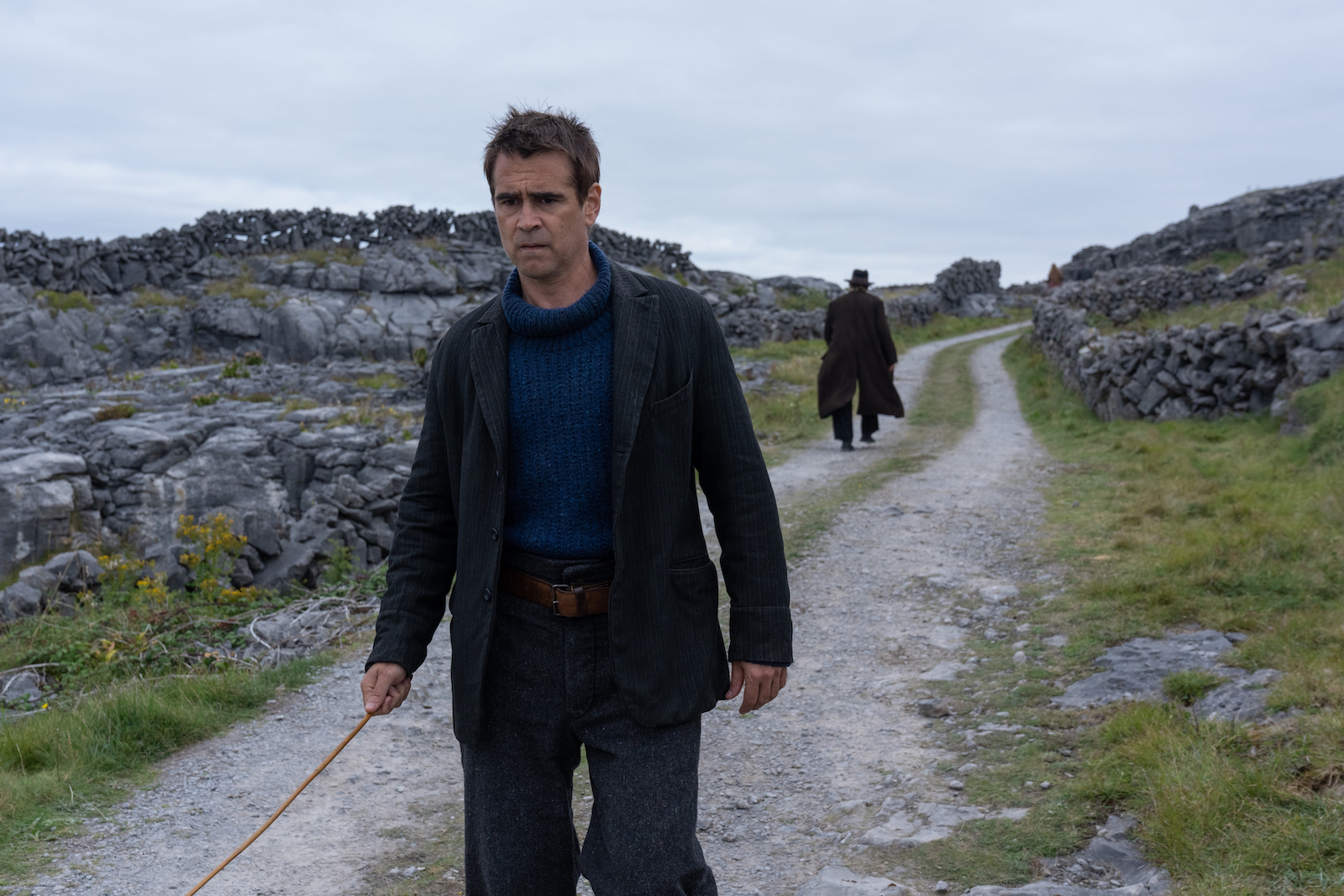
‘The Banshees of Inisherin’ is a Flawless Film
In Bruges is a cinematic litmus test. It turns out, whether someone is a fan of that movie or not is a particularly dependable indicator of similar or disparate tastes in dark comedy material. For me, it’s a film I never tire of…whether re-watching in its entirety or catching just a few scenes while surfing. The plot is bleak, yet we laugh. The characters are sad, yet we are charmed. It’s the perfect blend of character, story, and setting…and proves how exceptional and precise screenwriting can be. So why am I writing so much about a movie from 2008? Well, that film’s writer-director, Martin McDonagh, is back, and he’s brought along that film’s co-stars, Colin Farrell, and Brendan Gleeson.
Now, don’t think The Banshees of Inisherin is yet another in the endless stream of Hollywood sequels. It’s not. These are (much) different characters in a (much) different setting. What does remain the same is the onscreen magic when Colin Farrell and Brendan Gleeson collaborate with writer-director McDonagh. It’s how some singers are meant to sing one song (Sinatra belting “New York, New York”), or how some athletes are tied to a particular team (Sandy Koufax to the Dodgers). These three talented men are at their best when working together.
Pádraic Súilleabháin (Farrell) and Colm Doherty (Gleeson) have been best buddies for most of their lives. Every day at 2:00, Pádraic fetches Colm, and they head to the pub. One could set their watch by this. That all changes one day when Colm refuses to answer the door when his pal knocks. Later that day, he informs Pádraic that they are no longer friends, as he refuses to waste another moment drowning in inane conversation, and instead will focus on fiddle music and living his life to the fullest. Pádraic is shook and confused…as are the bartender and the other folks in this quaint (fictional) seaside village in coastal Ireland. There is a certain symmetry with the civil war playing out on the mainland and this break in a friendship. A crack about not knowing why the sides are fighting in the war adds yet more symmetry as Pádraic searches for meaning in the rift.
When Colm finally tells Pádraic that he doesn’t like him anymore and he doesn’t want his old friend speaking a word to him, we initially understand and agree with his reasoning, even if it seems a bit harsh. Pádraic is a bit of a bore – a man satisfied with his work as a milk farmer and spending off hours petting Jenny, his pet donkey, before blowing a couple more hours chatting at the pub, and ultimately retiring to the tiny cottage he shares with his erudite sister Siobhan (a superb Kerry Condon, “Better Call Saul,” “Ray Donovan”). Dull, dim, not a thinker…all descriptions of Pádraic we hear, though his self-reflection finds a gentle, kind soul – mostly harmless and enjoying his daily life. Well, that is, right up until his best friend locks him out.
The interactions between Pádraic and Colm are fascinating to watch. The two actors play off each other so well, we find ourselves hoping they will be together on screen without a break. It’s here where McDonagh’s script really shines. Ms. Condon as Siobhan and Barry Keoghan (Dunkirk, The Killing of a Sacred Deer, 2017) as Dominic both play significant roles (as does Jenny the miniature donkey). What initially seems like commentary on a shattered friendship between two men significantly expands thanks to these two characters. It reminds us that our network, regardless of how small, has an impact on others, even on a remote island in Ireland. The script and actors blend here to drive home the point.
Siobhan begins to question her own existence and how she might pursue her own dreams. Local boy Dominic is the son of an abusive policeman, and his troubles seem to run deeper than just being the town oddball. He likely has mental issues, yet occasionally shows flashes of hyper-awareness. He befriends Pádraic after the split, and his unconventional personality never quite sits well with others. When Dominic’s own dream gets shot down, he doesn’t possess the capacity to handle it well. The story and the island sustain tragedies, both small and large, and to top it off, there is a creepy old woman in the village who has visions of death.
Once we have settled into the drum beat of the split between Pádraic and Colm, McDonagh raises the stakes, bringing an unusual form of violence into the proceedings. This catches us and Pádraic and the whole of the village off guard, and makes for a stunning visual and eye-opening shock. There is no way to go into further detail without spoilers that should not be conveyed. What you need to know is that this is expert filmmaking, superb screenwriting, and the best acting of Colin Farrell’s career…leading the way for other excellent performances. Facing one’s own mortality is never easy, and we can each relate to Colm’s search for meaning as he sees time slipping away.
The film also treats us to the best-ever confessional scene, and more frequent uses of the word “fecking” than we’ve ever experienced. The beauty of the island is shown, but never featured. Instead, McDonagh does what he does best – delivers memorable characters and dialogue and unforgettable surprises. He also makes us wonder if our laughter is socially acceptable, causing us to be thankful for the dark theater.
